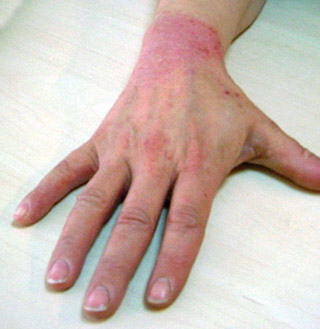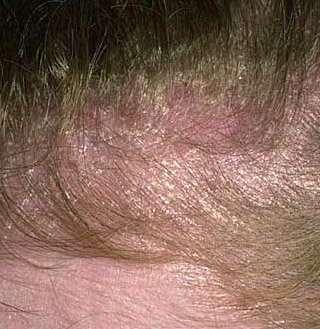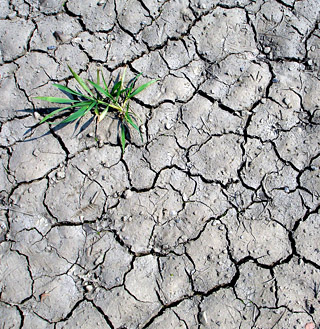eczema
Eczema is a form of dermatitis, or inflammation of the upper layers of the skin. The term eczema is broadly applied to a range of persistent or recurring skin rashes characterized by redness, skin edema, itching and dryness, with possible crusting, flaking, blistering, cracking, oozing or bleeding. Areas of temporary skin discoloration sometimes characterize healed lesions, though scarring is rare. Classification of the underlying diseases has been haphazard and unsystematic, with many synonyms used to describe the same condition.
Atopic Eczema: This condition usually starts in early childhood, especially when there is a family history of asthma, hay fever, conjunctivitis, or food allergies. It is very common in developed countries, and rising. The skin fails to hold in moisture, becomes dry, then inflamed, itchy and often infected.
Contact Dermatitis is of two types: allergic (resulting from a delayed reaction to some allergen, such as poison ivy or nickel), and irritant (resulting from direct reaction to, say, a solvent). Some substances act both as allergen and irritant. Other substances cause a problem after sunlight exposure, bringing on phototoxic dermatitis. About three quarters of cases of contact eczema are of the irritant type, which is the most common occupational skin disease. Contact eczema is curable provided the offending substance can be avoided, and its traces removed from one’s environment.
Xerotic Eczema (a.k.a. winter itch) is dry skin that becomes so serious it turns into eczema. It worsens in dry winter weather, and limbs and trunk are most often affected. The itchy, tender skin resembles a dry, cracked, river bed. This disorder is very common among the older population. Ichthyosis is a related disorder.
Seborrheic Dermatitis (a.k.a. cradle cap in infants, dandruff) causes dry or greasy scaling of the scalp and eyebrows. Scaly pimples and red patches sometimes appear in various adjacent places. In newborns it causes a thick, yellow crusty scalp rash called cradle cap which seems related to lack of biotin, and is often curable.
diagnosis
Eczema diagnosis is generally based on the appearance of inflamed, itchy skin in eczema sensitive areas such as face, chest and other skin crease areas. Given the many possible reasons for eczema flare ups, a doctor is likely to ascertain a number of other things before making a judgment, including family history, dietary and lifestyle habits, chemical exposure in the workplace or from hobbies, etc. To determine whether an eczema flare is the result of an allergen, a doctor may test the blood for the levels of antibodies and the numbers of certain types of cells.
Treatment
Other than direct treatments of the symptoms, no cure is presently known for most types of dermatitis; even cortisone treatments and immunomodulation may often have only minor effects on what may be a complex problem. As the condition is often related to family history of allergies (and thus heredity), it is probable that gene therapy or genetic engineering might help.
Because dermatitis severely dries out the skin, keeping the affected area moistened can promote healing and retain natural moisture. This is the most important self-care treatment that one can use in atopic eczema. The use of anything that may dry out the skin should be discontinued and this includes both normal soaps and bubble baths that remove the natural oils from the skin.
Antihistamine medication may reduce the itch during a flare up of eczema, and the reduced scratching in turn reduces damage and irritation to the skin. Dermatitis is also often treated by doctors with prescribed corticosteroid ointments, creams or lotions. For mild-moderate eczema a weak steroid may be used (e.g. Hydrocortisone or Desonide), while more severe cases require a higher-potency steroid (e.g. Clobetasol propionate). They are highly effective in most cases, but must be used sparingly to avoid possible side effects, the most significant of which is that their prolonged use can cause the skin to thin and become fragile.
more information
National Eczema AssociationEczemaNet
The Mayo Clinic (Dermatitis/Eczema)


